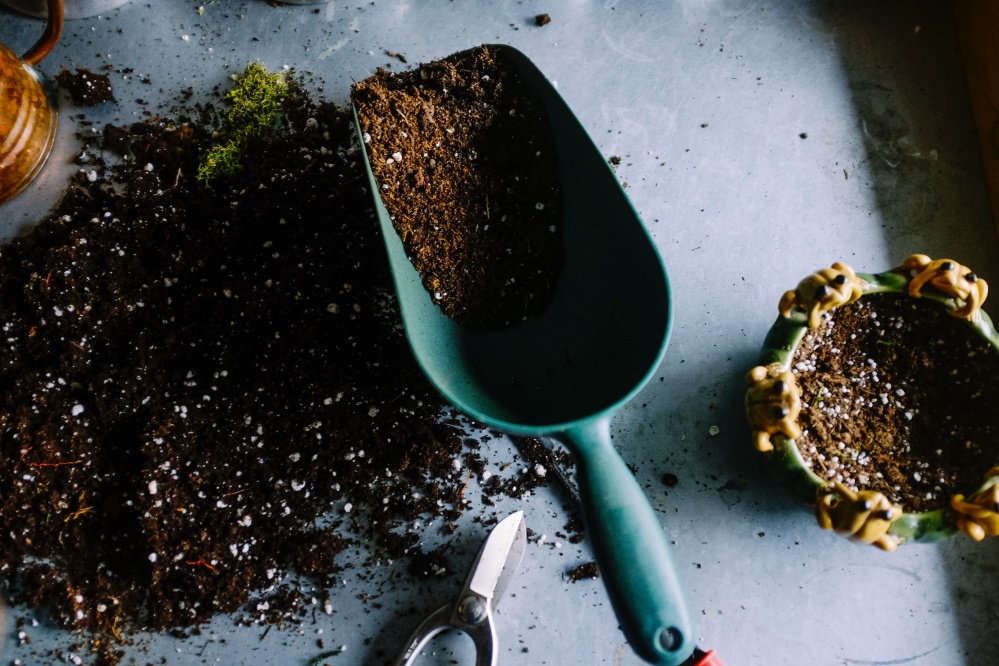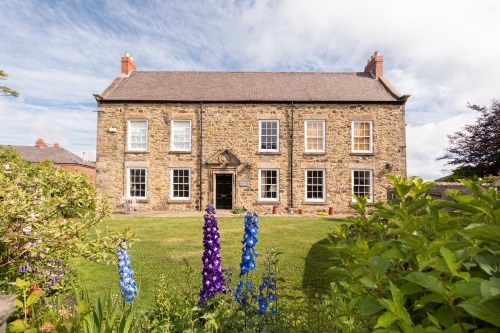Lottie Hawkins on Tackling Climate Change Through her Innovative Start-up Company Earthly Biochar

Ever heard of a stable form of carbon which improves soil and is a method of carbon capture, also known as biochar?
Biochar is an organic material which carbonises under high temperatures when there is little to no oxygen present, is produced from waste wood and waste biomass, and can be used to improve soil and increase soil fertility. Biochar helps combat the strain on the environment by acting like a sponge, holding water and nutrients, reducing the need for fertiliser to be added to soil.
Former Newcastle University student Lottie Hawkins set up an innovative start-up, Earthly Biochar, and the company is now the leading biochar start-up in the UK, developing the first biochar kiln on the market. By making one tonne of biochar, two and a half tonnes of CO2 is captured, preventing it from being released into the atmosphere.
COP26 maybe drawing to a close, and having repeatedly hit the headlines with its dire warnings it has done much to highlight the plight of the planet, but Lottie is on her own mission to tackle the issue of excess carbon dioxide in the atmosphere though the use of biochar. We caught up with her to find out more.

When did you first become interested in climate change?
I studied the sciences at school and went to Newcastle University to study Molecular Biology. As part of my degree I was taught about climate change, ecology and conservation, but I didn’t really get into it until I worked for an Australian start-up called Koh who make very environmentally-focused cleaning products. It was really inspiring and a good lesson which taught me about the sustainability of different materials and the impact a business can have on the climate. It’s a classic, but the David Attenborough documentaries and following the news on climate change made a difference as well. Four years ago I went vegan because I learnt a lot about the impact eating meat and dairy has on the planet, so it was really a mixture of growing up in the countryside, being more educated, and being made aware of how lucky we are to have such beauty surrounding us.
How did you learn about the power of biochar?
I became interested in something called permaculture, which is when you grow food in very sustainable ways, and I went along to a society meeting at Bournemouth University and met a guy (Greg) who was studying biochar for his masters. He asked myself and my co-found Connor Lascelles if we had heard of biochar and if Connor, who was a product designer, could design a kiln for him. So it was from a spontaneous conversation really.
What exactly is biochar?
The easiest description is probably to say biochar is almost pure carbon which is resistant to degradation, which means that it can’t break down in the environment. When you actually make biochar, all the carbon that is left that would have gone into the atmosphere as CO2 has been captured. It’s therefore a form of carbon capture and we can put it in the soil to improve soil health. If you went to shop for it, it would probably be labelled under soil enhancers or amendments, but it’s also used in large projects – we’re doing a consultancy project where we’re planting carbon capture gardens with biochar.
Tell us more about the smokeless kiln you’ve built.
It evolved from my co-founder Connor’s degree. We went away from the talk at Bournemouth University thinking how interesting this stuff sounded and were shocked we hadn’t heard of biochar before. There were loads of videos online of people who had tried to make their own kilns but there wasn’t anything commercial you could buy. Connor decided to make a working prototype for his final university project, and in August 2018 we formed Earthly Biochar. We now sell the smokeless kilns which are handmade in Wales to order, and because they’re smokeless they’re a really efficient and sustainable way of dealing with any waste wood – lot’s of people might put wood on a bonfire but they’re really smokey and what you get left with is a load of ash and carbon dioxide which goes up into the atmosphere. If you put your waste wood in our kiln you get left with biochar which can be used in your garden and you’ve captured the carbon as well, so it’s less polluting.
What’s your goal for Earthly Biochar?
Our primary goal is to fight climate change and to do that through biochar. In the next year we are bringing out three new products which will enter new markets. At the moment, biochar sits predominantly in the soil and gardening market, but we want to tap into a few new markets and increase the uptake of biochar in construction, fashion and the materials industry such as 3D printing. We’re developing those at the moment, but the big vision is to set up the first carbon negative biochar facility in the UK. We are working with Innovate UK, who have already funded us, and we’re applying for more funding to actively facilitate that. I think one of the other aims is about raising awareness and understanding of biochar – it’s not well heard of outside very niche circles which means that’s it’s pretty slow to adopt. However, every gardener in the UK could be using biochar tomorrow if they knew about it and understood it, and that would make a huge difference to our carbon footprint as a country.
What are some tips you can give us about using biochar in our gardens?
The simplest way to use biochar is to mix it into your compost bins – if you make compost at home you can mix your biochar in as you add food waste so it ends up being really evenly mixed. Alternately, you can buy store-bought compost and mix in the biochar. We also sell biochar with inoculant powder which you dilute in water and that’s full of nutrients and microbes which can be easier if you don’t have time for compost – you mix that with biochar and use it in your houseplants, veg beds and plant pots, and you only need a small amount.
Learn more about the benefits of biochar or purchase biochar or a biochar kiln at earthlybiochar.com







